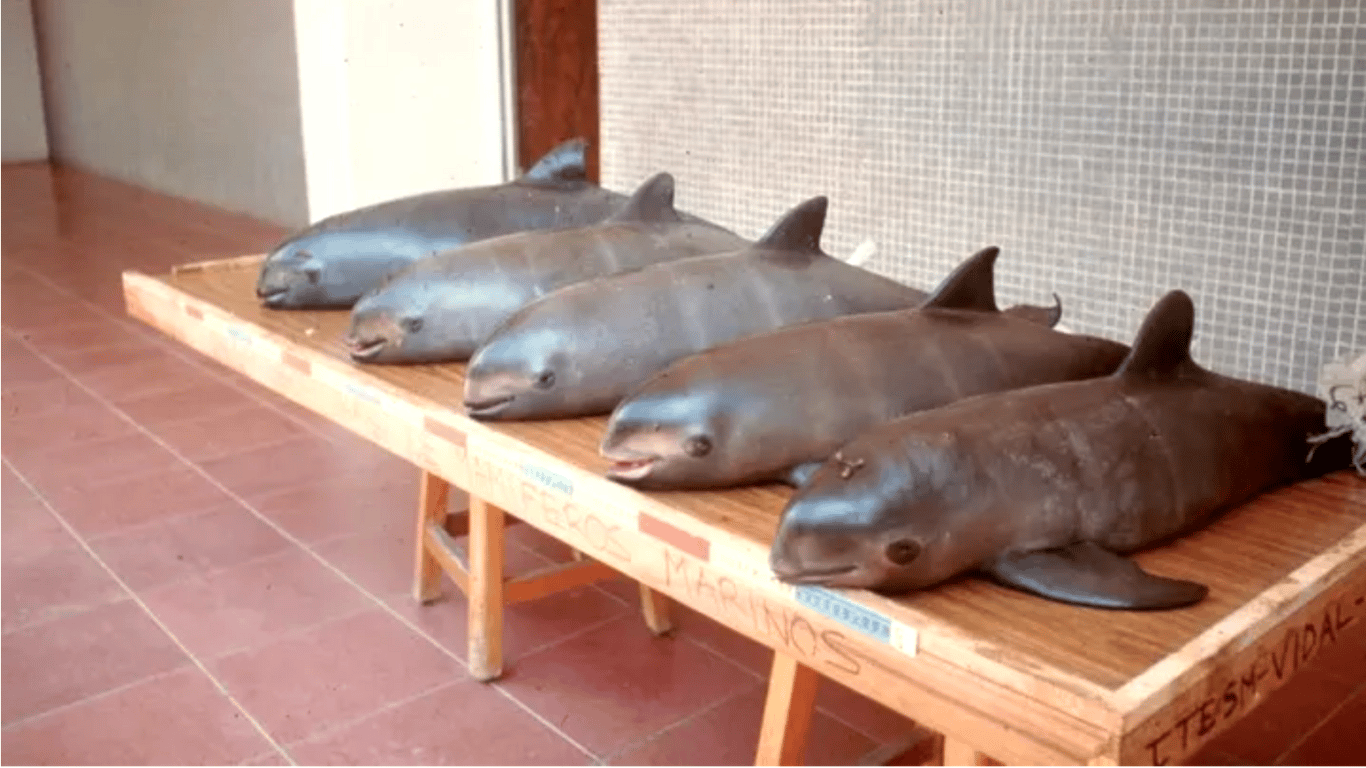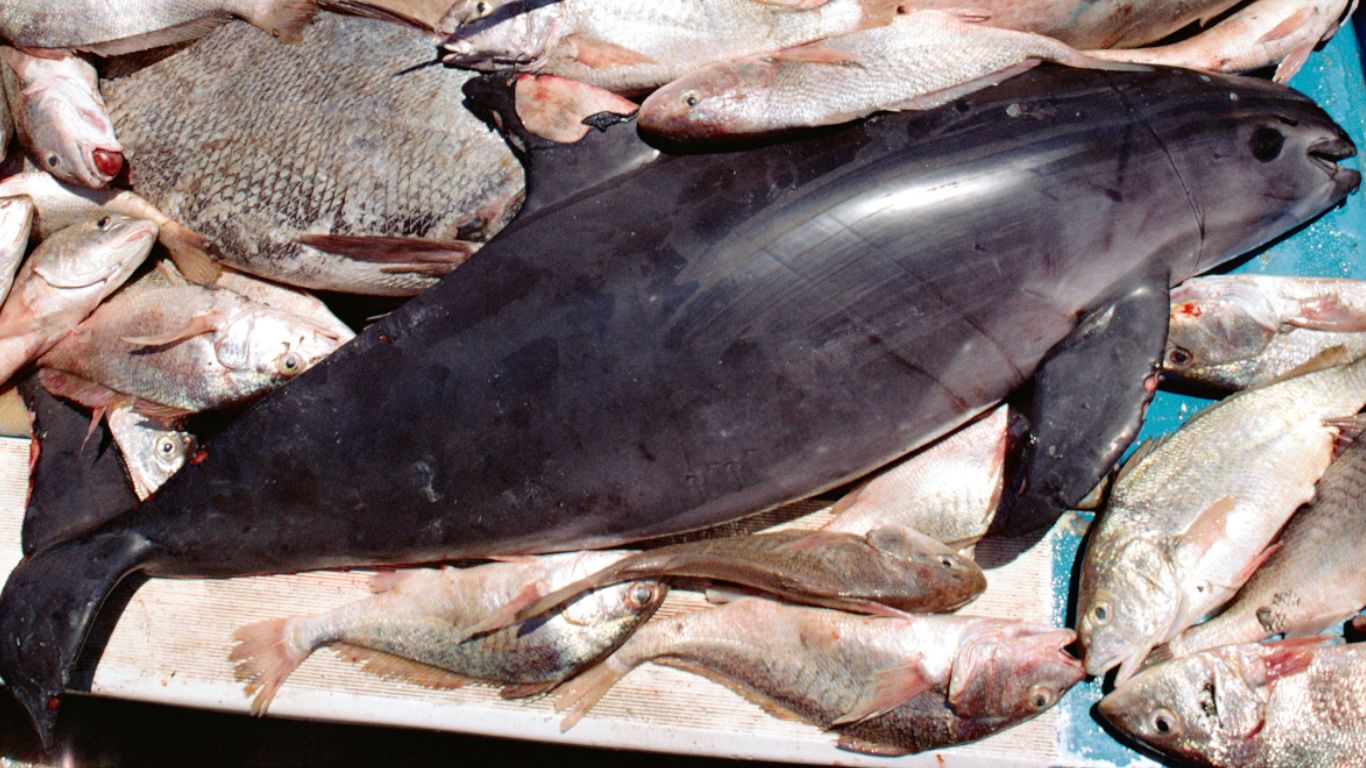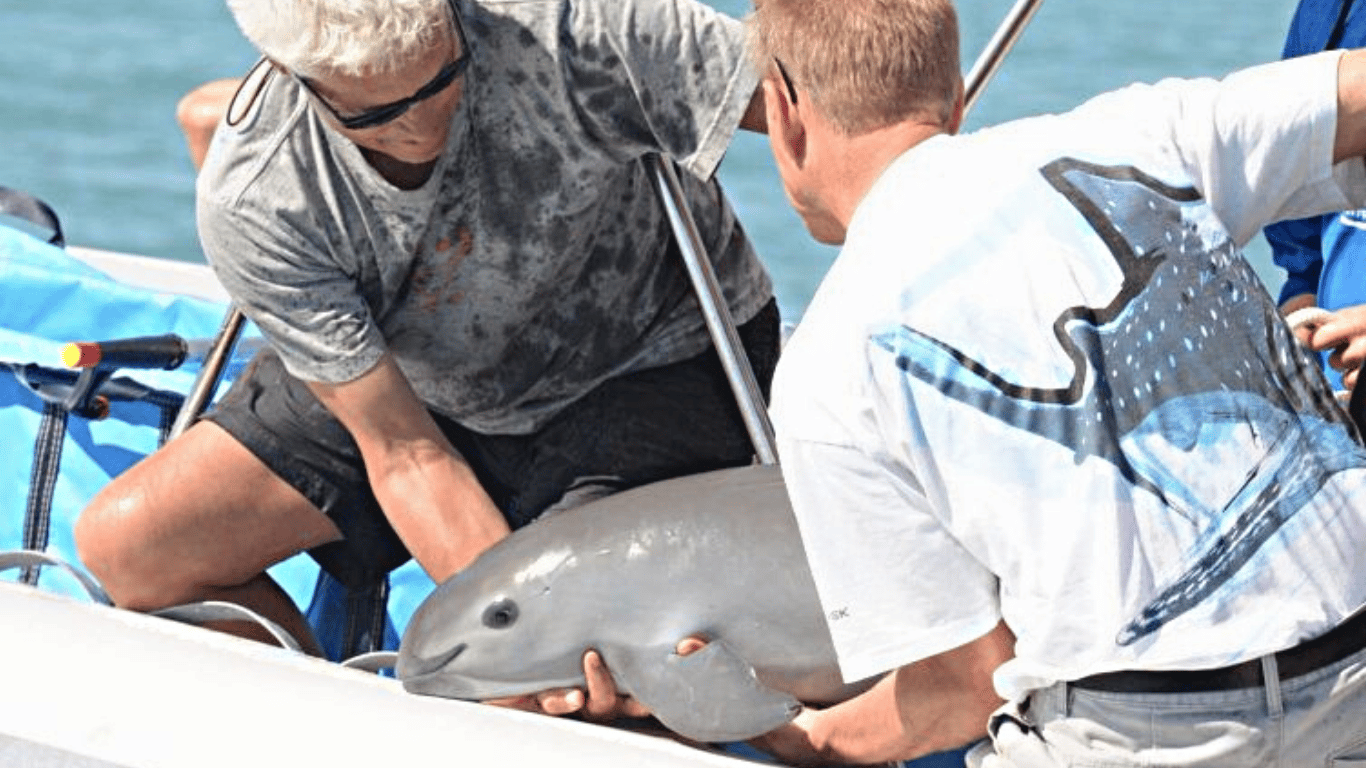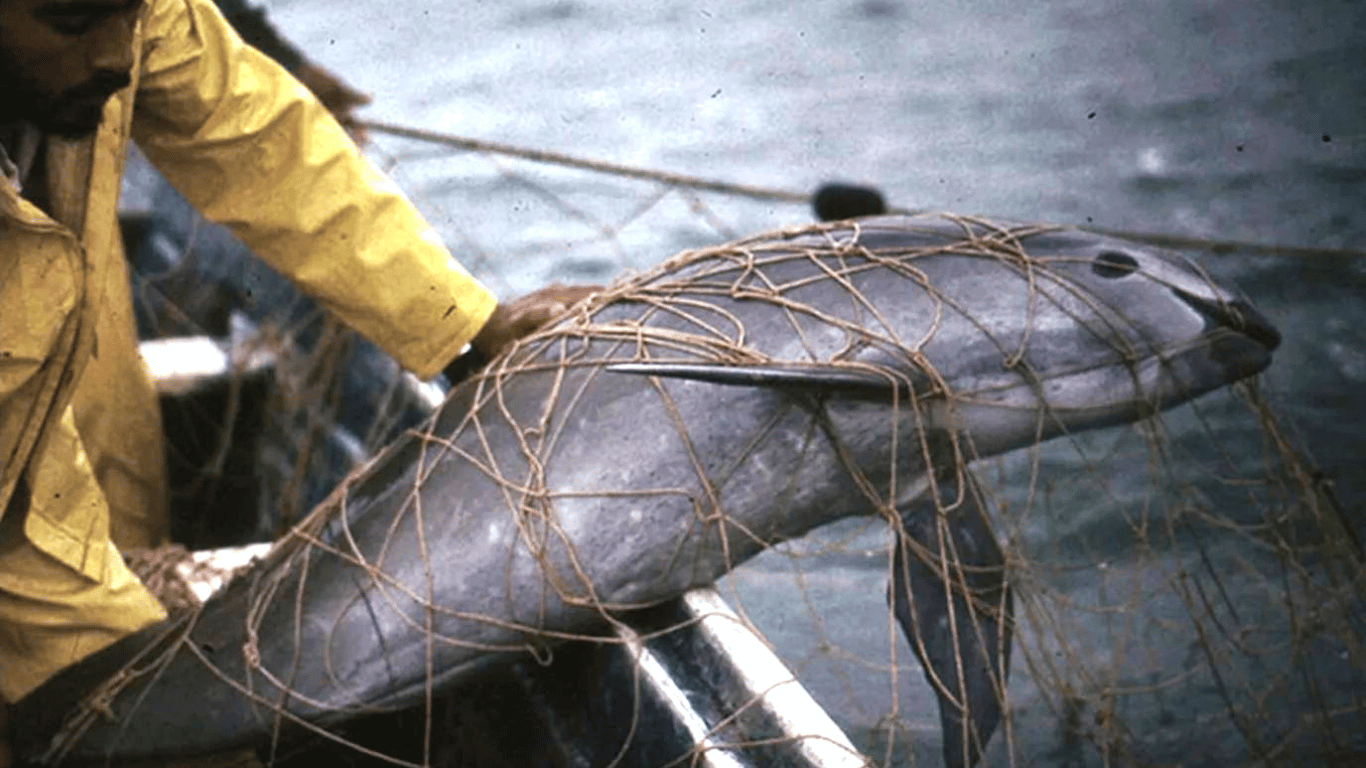The vaquita is the most endangered marine mammal on the planet. Right now, there are only about 10 of these small porpoises left in the entire world – we are perilously close to losing them forever.
Vaquitas live only in the Sea of Cortez in Mexico where imminent extinction beckons because they become entangled in illegal fishing nets and die. It’s that stark and that simple and without our help, another unique creature will be lost because of mankind destroying the oceans.
Vaquitas could be extinct within the next few years.
These rare creatures are in grave danger of disappearing within our lifetime. Please help us protect the last remaining vaquitas before it’s too late.
Vaquitas have striking dark-ringed facial features that are often compared to a smiling panda. They are shy and reclusive – steering clear of boats when approached. Unfortunately, they can’t always propel themselves away from potential threats fast enough. Unlawful totoaba fishing has been killing vaquitas since 1976. Over the last decade, the vaquita population has plunged from 576 to less than 10 individuals.
Human greed and selfishness is the cause.
Vaquitas are routinely caught by fishermen using gillnets, long walls of netting that hang in the water trapping fish. Gillnets are illegal, but commonly used by poachers seeking the much sought-after totoaba – another endangered species of fish that shares the vaquita’s habitat.
Once vaquitas become entangled in the nets they are unable to surface for air and drown within minutes. Those who do manage to escape often suffer severe injuries and do not survive the trauma.
Earth League International (ELI) is an innovative, hands-on NGO that fights wildlife crime through undercover operations. In response to the catastrophic consequences being faced by vaquitas due to the illicit totoaba trade, ELI conducted “Operation Fake Gold.” The team identified Asian and Mexican totoaba cartels and black markets in Mexico. Here, totoabas are poached and smuggled into China, where there is a high demand for their “maws” or swim bladders. This is because of their supposed medicinal properties. Scientific research, however, shows that the organ has no health benefits whatsoever.
Nevertheless, totoaba swim bladders go for $46 (£37) per gram on the Chinese black market. To put this into perspective – gold goes for $40 (£32). Can you believe that totoaba is considered more precious than gold? These fish are often labelled “aquatic cocaine.”
In an attempt to protect vaquitas, the Mexican government banned gillnet fishing in 2017. But enforcement efforts are feeble, and vaquitas continue to be obliterated. The only way to put an end to the illicit totoaba trade is through urgent, covert intervention on the ground.
Not all hope is lost – the impending extinction of vaquitas CAN be prevented.
But if these animals are to have any chance at survival, it is critical that the authorities step up enforcement measures to terminate illegal fishing operations FOR GOOD.
And we have a plan to help.
ASI will work alongside Earth League International (ELI), at considerable risk to themselves, they intercept planned poaching operations before they start fishing. Law enforcement officials and local government officials are presented with such strong evidence that they have no choice but to act. This they can easily do because their job has been done for them. It’s an approach that works and one that with your help, will make their species stronger – please, will you help us today?





